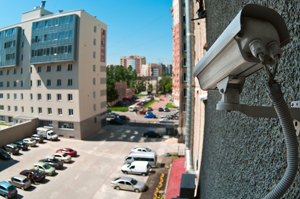The Advent of Surveillance Realism

Posted by Dr Lina Dencik
Does the post-Snowden debate reveal the extent to which we can no longer imagine a society without mass surveillance?
In Mark Fisher’s book Capitalist Realism he describes a society in which we can no longer imagine a world without capitalism, a world that offers a different model of society, one we might even be happier to live in. Despite seeing and experiencing the injustices and fallacies of capitalism all around us, recognizing how unhappy it might make us, how limited we may find its rewards, how unequal its outcomes, we have reached a state where we still think this is the only possible system available to us.
This week the London School of Economics hosted an event titled ‘After Snowden’ that included a panel of experts discussing the implications of the Snowden leaks for society from different angles, including Gus Husein from Privacy International, Ronald Deibert from Citizenlab, historian Ronald Pruessen from the University of Toronto, and former Director of GCHQ Sir David Omand. Listening to the debate, and especially the questions from the audience that followed, there was a sense in which we seem to have reached a similar scenario in our understanding of (mass) surveillance to the one Mark Fisher describes with regards to capitalism. That is, despite seeing, recognizing and fearing the fallacies of the system, how it impacts on our lives, limits our freedoms, and encroaches on our rights, we can no longer imagine society without ubiquitous surveillance. We are living in a state of Surveillance Realism.
The British state, along with its willing allies, has been at the forefront of advancing this project, using a host of resources at its disposal to naturalise and normalize surveillance in all its forms. Surveillance is an inevitable outcome of the risky globalized world we now live in, we are told, where terrorists are out to kill us, criminals are out to steal our money, people want to change our way of life. And no, there can’t be any hidden places, any dark corners, or secret rooms, where communication can happen free from the watchful eyes of the state – these will only be used by the ‘bad guys’ (to use Sir David Omand’s repeated phrase during his contribution at the LSE) who are out to harm you. Surveillance, and by that we mean the possible collection of all communication, is simply just something we must live with, it’s the way things are. And after all, what do you have to hide?
The dominance of the ‘what do you have to hide’ position in the post-Snowden debate is exemplary of Surveillance Realism. It illustrates a disposition of defeat in which, rather than asking the state to be accountable to the public under political control of an elected government (as liberal democratic theory dictates), we have accepted a state of affairs in which we must make ourselves constantly accountable to the state, in all areas of life. Surveillance Realism is a state where we no longer question why this should be the case. Rather, we accept it as an inevitability of our world – it’s part of everyday life.
The Snowden leaks sparked very little response from the public at large, certainly in the UK, even in corners where outrage might usually be found. In discussions, many political activists have shrugged their shoulders and highlighted how in a society entrenched in CCTV cameras, with widespread practices of police infiltration, where corporations have their own intelligence units for anti-corporate activity, the fact that all digital communications is systematically tracked and stored by the state comes as little surprise, it is to be expected.
At the event at the LSE, the most telling thing about it was how little the very practice of surveillance was questioned. Despite attempts by both Husein and Deibert to highlight some of the democratic implications of mass surveillance as revealed by Snowden (such as the need for privacy, warrant and accountability), the direction of the debate became far more about how such surveillance could be done ‘safely’, that is, without unintended consequences that would allow simultaneous access to surveillance tools and data by the ‘bad guys’ (illiberal states and cybercriminals). Forced to try and find common ground and be heard, even critics of state surveillance practices have had to enter into terms of debate that allow for space in which to try and limit the extensive reach that governments are pushing for, but in which they can no longer challenge and question a system of mass surveillance at a fundamental level.
This speaks to a very troubling situation. One in which the issue is not simply to harvest the resources available to us that can challenge the current surveillance regime, but one in which we have to expand the limits of our imagination and reassert the possibilities of another world, another way of organizing society. This is not an easy task. Public debate post-Snowden (and lack thereof) seems to have revealed the extent to which we are now living in a state of Surveillance Realism; overcoming this will be one of the greatest challenges ahead of us as the quest for power and social control increasingly catches up with technological capabilities.
